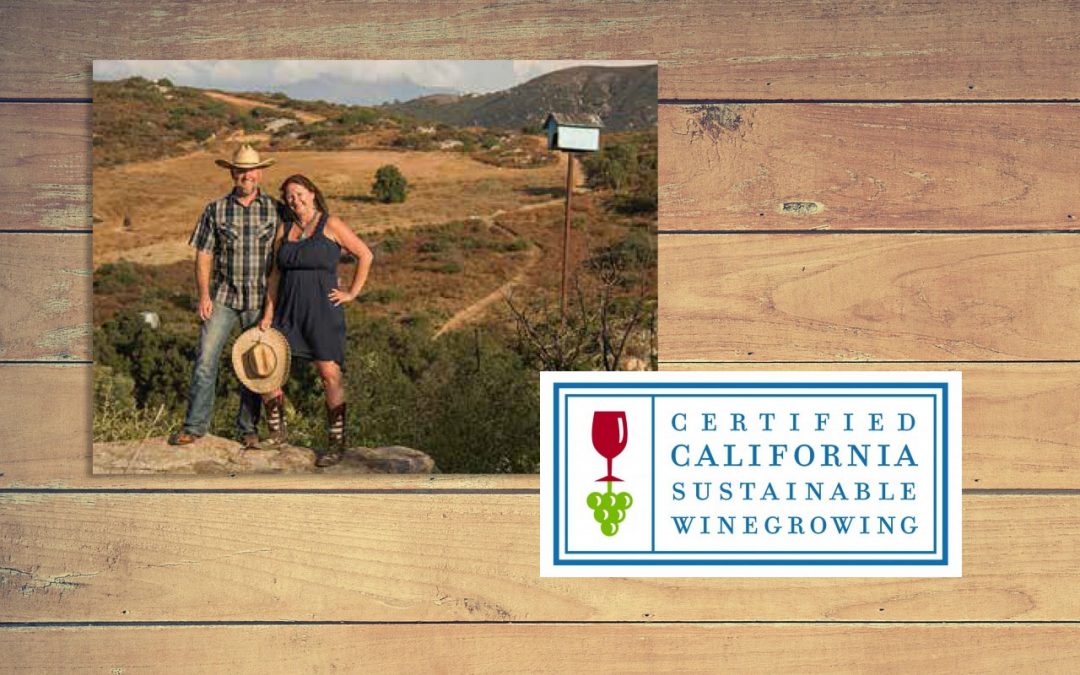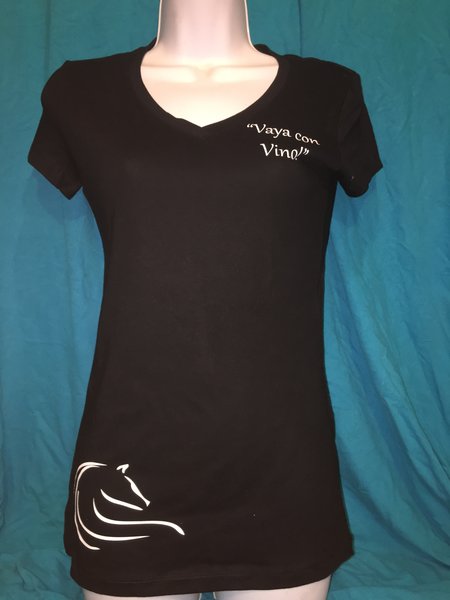Dreaming of a rural life in horse country, Teri Kerns and Micole Moore bought 10 acres in Ramona, just northeast of San Diego, in 2004. Two years later, they planted their first grapevines and now operate the 1,000-case Ramona Ranch Vineyards & Winery, in the Ramona Valley AVA in Southern California. The couple are avid environmentalists and nature lovers, committed to farming in harmony with wildlife, and recently became Certified California Sustainable Winegrowers (CERTIFIED SUSTAINABLE). Teri replies here.
A lot of people may not have heard of the Ramona Valley AVA. What’s distinctive about it as a winegrowing region?
It’s a fairly large AVA, established in 2006. Our property is high above sea level but only 40 miles from the coast, so we get coastal breezes and a nice temperature shift from day to evening. It really is the perfect climate. We’re at just under 2,000 feet, above the fog line. The grapes that do well here are those that do well in the south of France, like Viognier and Syrah. Sangiovese is doing amazingly, and we’re working with Aglianico, Montepulciano, Tempranillo and Muscat.
Where does your environmentalism come from?
I grew up in Coos Bay, Oregon, in a family that practiced sustainability before it was cool. We raised our own cows and chickens and always had a garden. My dad had a commercial fishing boat. Farm-to-table was how we ate, although we didn’t know it was called farm-to-table.
You have quite the menagerie on your ranch.
We have a lot of rescues. The most recent additions are Thelma and Louise, two miniature ponies that were rescued off a feedlot in Texas. They were emaciated, covered in bug bites, and looked and acted like they were 30. Turns out they were four and eight. When they got here, they ran around squealing and jumping and kicking. They’re the cutest little ponies now. We have a lab rescue—a puppy-mill mom—and an Angus steer that was a 4-H project. We have heirloom chickens and two pet goats. We did not lose our home in the 2007 Witch Creek fire and I credit the goats. They had cleared the property.
Do these animals contribute to vineyard operations in any way?
We compost all of the manure and spread that on our vineyard. We top-dress with it. We’ve learned that, in our windy area, tilling isn’t good. You can lose your topsoil. We combat weeds the old-fashioned way: we hire high-school kids with weed whackers.
Tell us about your insectary and whether it’s having any impact.
When Micole and I toured Benziger Winery in Sonoma County, which is known for its biodiversity, we learned that the healthier your ecosystem, the healthier your vines. So we planted a quarter-acre insectary to encourage good bugs and butterflies: a mix of California native, lavender, butterfly bush, salvia—plants that smell good and look good and don’t need much water. When you take a minute to be still and look at it, you can see that it’s teeming with life: bees, butterflies, hummingbirds and little finches.
Your ranch is a National Wildlife Federation Certified Wildlife Habitat. What did you have to do to achieve that?
We had to educate ourselves about what wildlife needs to thrive on our property: food, cover and water. We leave corridors for animals to live in. We now have a healthy population of California quail and we see beneficial snakes that eat rodents.
Megan Escalona, our part-time director of sustainability, helps ensure the ecological balance of our property. She is determining what species we have on the property that are threatened or endangered and developing mitigation plans. We have Coastal Rosy Boa snakes, a sensitive species, and Megan has been working on best practices to avoid damaging the native population. She is also identifying the different birds on our property, like the Greater Roadrunner, Cooper’s Hawk and Golden Eagle.
I think our visitors enjoy being able to sit outside and experience the wildlife, when a hawk comes soaring over or they see quail run through the vineyard. California cliff swallows make their home at Ramona Ranch. Every year they come back in March to raise their babies. It makes me happy that we can provide an environment that supports the local ecosystem.
Reprinted with permission from Wine Institute, CSWA, Janet Fletcher
http://www.sustainablewinegrowing.org
[related_posts_by_tax]


